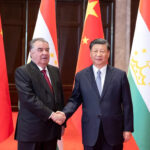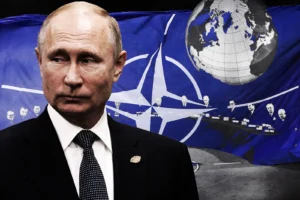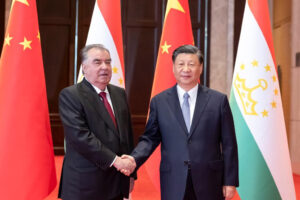My visit to Chile – the first by the United Nations High Commissioner for Refugees – comes amidst the largest population movements in Latin America’s recent history. Chile is among the nations most affected by the mass exodus of refugees and migrants from Venezuela, having received around 10 per cent, or more than 400,000 of the 4 million Venezuelans who have left their country to date. That makes Chile the number three recipient country, after Colombia and Peru.
Throughout my visit, I’ve been most impressed by the solidarity and hospitality of the Chilean people and government and their willingness to take in Venezuelans in need – much as Venezuela took in thousands of Chilean refugees decades ago. At that time, UNHCR provided assistance to Chilean refugees. Now, UNHCR is providing similar assistance to refugees and migrants from Venezuela – the vast majority of whom have sought safety in Latin America and the Caribbean.
In our meetings, Chilean authorities underscored the government’s commitment to complying with its international obligations, including guaranteeing the right to asylum. I was informed of a 9 August resolution which outlines instructions for the granting of safe passage to Venezuelan nationals for humanitarian reasons. I take note of this measure and of Chilean authorities’ willingness to guarantee the right to asylum in the country. It is fundamental that this right – which figures both in Chile’s national legislation as well as international law – be guaranteed throughout the entirety of Chilean territory, including along land borders, and that asylum-seekers not be hindered in exercising this right.
In addition to my meetings with authorities, I also had the opportunity to hear from representatives of other United Nations agencies, as well as academics and members of civil society. In frank exchanges with Venezuelan refugees and migrants themselves, they made it clear how deeply they appreciate Chile and the Chilean people for having taken them in and making them feel welcome. This very positive reaction deserves particular recognition, given the xenophobia that has been seen of late in other countries in the region.
I recognize the efforts Chile and its local communities have made to take in, integrate and provide documentation for refugees and migrants from Venezuela and other countries. It is important that these efforts continue and are ramped up, so that these people are able to live with dignity and contribute to Chile’s economy and society. The processes for obtaining documentation must be streamlined to avoid long waits that make it slower and more complicated for refugees and migrants to integrate into society. My office is, therefore, available to collaborate with Chilean authorities to help build capacity and mobilize resources.
The situation of Venezuelans in Chile mustn’t be regarded in isolation. Chile is the final destination for many Venezuelans who have traveled through other countries in the Andean region. It is crucial that the countries of the region deliver a coordinated response to the exodus of Venezuelan nationals. I therefore call on Chile to continue to take an active role in regional instruments, such as the Quito Process, aimed at coordinating and harmonizing national policies. UNHCR and IOM support this process through the regional inter-agency coordination platform, which brings together more than 40 organizations dedicated to responding to the protection, assistance and integration needs of Venezuelan refugees and migrants.
In conclusion, I would like to underscore our commitment to continue working constructively with Chilean authorities and civil society, as well as to continue to call on the international community to step up its support of Chile – including financial support. One of the important objectives of my visit is to remind international partners, donors and financial institutions that the responsibility for taking in, protecting and assisting Venezuelan migrants and refugees must not be shouldered by a single country or region and that international solidarity consists not of words but rather of concrete actions and resources.
Source : UNHCR
















